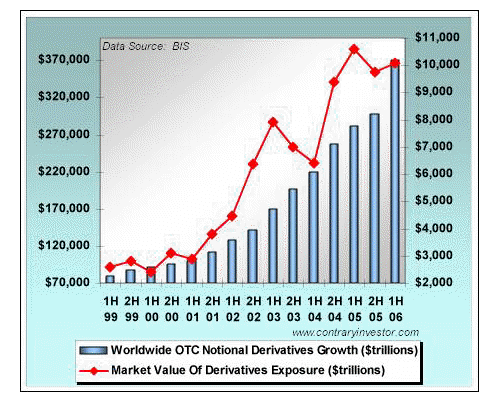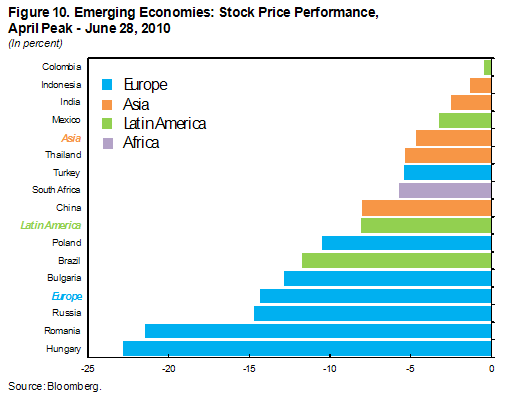Cross-listing and liquidity in emerging market stocks
Our mission is to help leaders in multiple sectors develop a deeper understanding of the global economy. Our flagship business publication has been defining and informing the senior-management agenda since Companies from developed economies derive no benefit from second listings in foreign equity markets.
Those that still have them should reconsider.
Why cross-listing shares doesn’t create value | McKinsey & Company
Conventional wisdom has long held that companies cross-listing their shares on exchanges in London, Tokyo, and the United States buy access to more investors, greater liquidity, a higher share price, and a lower cost of capital. In the s and s, hundreds of companies from around the world duly cross-listed their shares. Yet this strategy no longer appears to make sense—perhaps because capital markets have become more liquid and integrated and investors more global, or perhaps because the benefits of cross-listing were overstated from the start.
From May to May , 35 large European companies, including household names such as Ahold, Air France, Bayer, British Airways, Danone, and Fiat, terminated their cross-listings on stock exchanges in New York as the requirements for deregistering from US markets became less stringent. Since March , foreign companies have been allowed to deregister with the US Securities and Exchange Commission if less than 5 percent of global trading in their shares takes place on US stock exchanges.
These moves represent the acceleration of an existing trend: On the Tokyo Stock Exchange, too, some well-known companies, such as Boeing and BP, have recently withdrawn their listings.
Whatever benefits companies might once have derived from cross-listing, our analysis shows that in general it brings few gains but significant costs, at least for most companies in the developed markets of Australia, Europe, and Japan. Previous research 2 2. We investigated each of them to see if it still applies now that capital markets have become more global.
For Australian and Japanese companies, the percentage is even lower. We did not analyze the trading pattern for UK or Japanese secondary listings, but the US finding hardly suggests that they do much to improve liquidity.
Academic research indicates that companies get better or more analyst coverage when they cross-list in the United States—and that potential investors therefore get better information. It is indeed true that cross-listed companies receive more coverage from analysts, but the reason, in part, is that cross-listed companies are on average larger. After correcting for the impact of size, we found that cross-listed European companies are covered by only about 2 more analysts than those that are not cross-listed—a very modest difference, since the average number of analysts covering the largest European companies is 20 Exhibit 2.
Such a small increase is unlikely to have any economic significance. In an age when electronic trading provides easy access to foreign markets, the argument that foreign listings can give companies a broader shareholder base no longer holds.
Furthermore, a foreign listing is not even a condition, let alone a guarantee, for attracting foreign shareholders. It may improve access to private investors, but as capital markets become increasingly global, institutional investors typically invest in stocks they find attractive, no matter where those stocks are listed. One large US investor—CalPERS—has an international equity portfolio of around 2, companies, for example, but less than 10 percent of them have a US cross-listing.
In fact, because of better trading liquidity in the home market, institutional investors often prefer to buy a stock there rather than the cross-listed security. UK and US capital markets may once have had higher corporate-governance standards than their counterparts in other parts of the world. However, other developed economies, such as the continental member states of the European Union, have radically improved their own corporate-governance requirements.
As a result, the governance advantages once derived from a second listing in the United Kingdom or the United States hardly exist today for companies based in developed countries. As investors increasingly come to trade around the world, however, local stock markets have provided a sufficient supply of equity capital to companies in the developed economies of the European Union and Japan.

A UK or US cross-listing therefore does not appear to confer a compelling benefit. Besides, three-quarters of the US cross-listings of companies from the developed economies through ADRs have actually never involved the raising of any capital in the United States. This figure is based on depositary receipt issues on the NYSE, NASDAQ, and AMEX from January to May adrbny.
What they did was to provide foreign companies with acquisition currency for US share transactions. As academic research has shown, companies cross-listing their shares in the United States doubled, on average, their US acquisition activity over the first five years after the cross-listing. There may thus be a real benefit from US cross-listings for companies planning US share transactions. Maintaining an additional listing generates extra service costs—for example, fees for the stock exchanges—and additional reporting requirements, such as F statements for ADRs.
Although these service costs tend to be minor compared with the cost of compliance particularly with US regulations such as Sarbanes—Oxley , they have grown enormously over the last few years. Our analysis of stock market reactions to delistings since on UK and US stock exchanges Exhibit 3 found no negative share price response from the announcement of a voluntary delisting.
Involuntary delistings occur, for example, as a result of bankruptcies, mergers, and takeovers.
Our comparative analysis of the valuation levels of some cross-listed companies, on the one hand, and more than 1, comparable companies without foreign listings, on the other, confirmed that the key drivers of valuation are growth and return on invested capital ROIC , together with sector and region. A cross-listing has no impact Exhibit 4. We are still analyzing the benefits and costs of dual listings for companies in emerging markets, where the advantages and disadvantages vary more from country to country than they do in the developed world.
Our analysis so far has uncovered no clear evidence of material value creation for the shareholders of these companies. We found neither anything to suggest that cross-listing has a significant impact on their valuations nor any systematically positive share price reaction to their cross-listing announcements.
This finding might be explained by the much smaller size of the sample of companies from the emerging world and the much higher average volatility of their equity returns. Nonetheless, we did uncover some findings specific to companies from the emerging world. Cross-listed shares represent as much as a third of their total trading volume, for example.
Cross-listing and liquidity in emerging market stocks
Furthermore, some of these companies have succeeded in issuing large amounts of new equity through cross-listings in UK or US equity markets—something that might have been impossible at home. Last but not least, compliance with the more stringent UK or US corporate governance requirements and stock market regulations rather than local ones could generate real benefits for shareholders.
Companies from developed economies with well-functioning, globalized capital markets have little to gain from cross-listings and should reconsider them. Create a profile to get full access to our articles and reports, including those by McKinsey Quarterly and the McKinsey Global Institute, and to subscribe to our newsletters and email alerts.
Chemicals Our Insights How We Help Clients Our People Contact Us. Consumer Packaged Goods Our Insights How We Help Clients Our People Contact Us. Financial Services Our Insights How We Help Clients Our People Contact Us.
High Tech Our Insights How We Help Clients Our People Contact Us. Public Sector Our Insights How We Help Clients Our People Contact Us. Retail Our Insights How We Help Clients Our People Contact Us. Semiconductors Our Insights How We Help Clients Our People Contact Us. Social Sector Our Insights How We Help Clients Our People Contact Us. Telecommunications Our Insights How We Help Clients Our People Contact Us. Business Functions Analytics Analytics Our Insights How We Help Clients Our People Contact Us.
Design Our Insights How We Help Clients Our People Contact Us. Digital McKinsey Our Insights How We Help Clients Our People Contact Us. Implementation How We Help Clients Our Insights Our People Contact Us. Operations Our Insights How We Help Clients Our People Contact Us.
Organization Our Insights How We Help Clients Our People Contact Us. Risk Our Insights How We Help Clients Our People Contact Us. Global Themes Timely Topics Regions Digital Disruption Employment and Growth Internet of Things Leadership Long-term Capitalism Urbanization Winning in Emerging Markets Women Matter.
Americas Asia-Pacific China Europe India Middle East and Africa. Careers Home Search Jobs Explore Our People Interviewing Students Experienced Professionals. About Us Overview Who We Are What We Do Social impact Media Center Alumni New at McKinsey Blog.
Featured McKinsey Global Institute Our mission is to help leaders in multiple sectors develop a deeper understanding of the global economy. McKinsey Quarterly Our flagship business publication has been defining and informing the senior-management agenda since Our Insights How We Help Clients Our People Contact Us.
WatersTechnology - global financial technology news and analysis
Search Toggle search field. Toggle search field Toggle search field. Article - November Article Actions Share this article on LinkedIn Share this article on Twitter Share this article on Facebook Email this article Download this article.
Product managers for the digital world Article. The next disruptive technology in the power sector Article.

The expanding role of design in creating an end-to-end customer experience Article. Technology, jobs, and the future of work Executive Briefing - McKinsey Global Institute. Sign in Please sign in to print or download this article. Don't have a profile? Please create a profile to print or download this article. Sign up for email alerts Select topics and stay current with our latest insights Email address. McKinsey Insights - Get our latest thinking on your iPhone, iPad, or Android device.